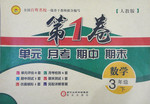题目内容
About seven years ago, whenever I notice someone looked nice, I started telling them they looked nice. Shortly afterwards, I came up with an observation: If you tell five people during the day that they look nice, at the end of the day, six people feel great. Here are some fruitful experiences I have with this.
One day, I was riding with a friend when we rolled to a stop at the traffic light. As we waited for the light to turn green, a man walked across the crosswalk. He looked very together, so I called out, “Hey, you look sharp today!” Pointing towards a building, he said, “Thanks, but I was sharper there.” His comment puzzled me. But before I could ask about it, the light turned green, and we drove on. I asked my friend what he meant. My friend informed me that we were at the corner of a radio station and the man was the voice on the radio. Then I understood. But no matter who he was the biggest thing for me was that he was smiling when he accepted my compliment (赞扬).
Later that day, there was a woman standing on the corner where we were turning, and I yelled (大喊) the compliment again, “You look nice!” She was just taking a sip of a bottle of water and started to laugh. I felt good to get a laugh.
Another day, while seated in a restaurant, there was a lady sitting near me. I really did not care for her skirt, but she did look nice in it, so I told her, “You look nice today.” She looked at me and rolled her eyes a little. Well, her friend sitting next to her told her, “He just gave you a compliment. Say thank you.” I don’t remember whether she said “thank you” or not, but what I did notice was that her friend was smiling at my “You look nice today” compliment
- 1.
The underlined word “sharp” in Paragraph 2 probably means_________
- A.attractive
- B.sudden
- C.strict
- D.mild
- A.
- 2.
Which of the following statements is NOT true according to the passage?
- A.The first man the author praised accepted his compliment
- B.The first man the author praised worked at a radio station
- C.The woman standing on the corner didn’t like the compliment
- D.The friend of the lady in the restaurant felt happy about the compliment
- A.
- 3.
What would be the best title of the passage?
- A.Fruitful Experiences
- B.Help Others, Help Yourself
- C.Learn to compliment
- D.“You Look Nice Today”
- A.
ACD
试题分析:文章大意:记述作者对于赞美别人这一行为的认识,并通过几件事例加以印证。
1.猜词题,根据文章所述应为赞美的词,为褒义词,A项意思为“吸引人的”为赞美词。
2.判断正误题,只有C项不合文章主旨“坐在拐角的那位女士不喜欢赞美”。
3.概括大意题,本文表作者对于赞美别人这一行为的认识,D项文中反复出现,故选D。
考点:生活百科类短文阅读
试题分析:文章大意:记述作者对于赞美别人这一行为的认识,并通过几件事例加以印证。
1.猜词题,根据文章所述应为赞美的词,为褒义词,A项意思为“吸引人的”为赞美词。
2.判断正误题,只有C项不合文章主旨“坐在拐角的那位女士不喜欢赞美”。
3.概括大意题,本文表作者对于赞美别人这一行为的认识,D项文中反复出现,故选D。
考点:生活百科类短文阅读

练习册系列答案
 第1卷单元月考期中期末系列答案
第1卷单元月考期中期末系列答案
相关题目